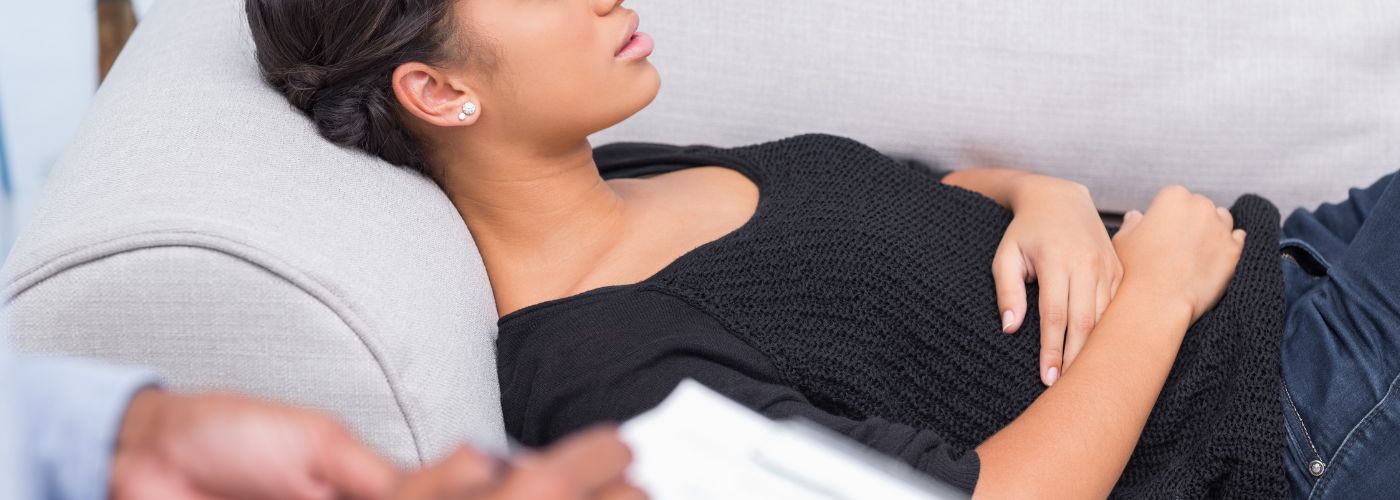Body image therapy is a specialized form of psychotherapy designed to help individuals improve their perception and relationship with their own bodies. It focuses on addressing and resolving negative body image issues, which can encompass a wide range of concerns related to how one views and feels about their physical appearance.
Body image therapy is provided by licensed mental health professionals who have expertise in body image issues and related psychological conditions.
Licensed Body Image Therapists in Las Vegas
Body image concerns are incredibly prevalent in today’s society, and they can affect individuals from all walks of life. Whether you’re a teenager grappling with the pressures of peer comparisons, a new mother adjusting to post-pregnancy changes, or an adult dealing with long-standing issues related to self-esteem and body dissatisfaction, therapy for body image issues can be a profoundly valuable resource.
It’s essential to understand that seeking therapy for body image issues is not a sign of weakness but a courageous step towards healing and self-acceptance. Our team of licensed therapists at Mindful Healing Counseling is here to offer support and guidance throughout your journey.
We are dedicated to helping you navigate the complexities of body image concerns and regain a positive and healthy relationship with your body. You don’t have to face these challenges alone; with body image and body dysmorphia therapy, we are here to help you rediscover your inner strength and beauty.

When Is Therapy for Body Image Issues Needed?
It’s absolutely crucial to understand that no one is immune from issues surrounding their view of their own bodies. While no two cases are exactly alike, here are some scenarios and signs that indicate therapy for body image issues may be needed:
Persistent Negative Self-Talk: If you often find yourself engaging in self-criticism, harsh judgments, or a constant stream of negative self-talk related to your body, it’s a strong indicator that your body image may be causing you significant distress.
Avoidance Behaviors: Some individuals begin to avoid social situations or activities they once enjoyed because of their concerns about their appearance. This avoidance can lead to isolation and negatively impact your overall quality of life.
Disordered Eating Habits: Struggling with unhealthy eating patterns, whether it’s overeating, undereating, binge-eating, or food addiction, is often intertwined with body image issues. Therapy can help address the emotional components that contribute to these behaviors.
Depression or Anxiety: Body image concerns frequently co-occur with mental health conditions such as depression and anxiety. These conditions can exacerbate negative body image and vice versa. Therapy offers strategies for managing both.
Unrealistic Perceptions: If you have unrealistic or distorted perceptions of your body, it can be challenging to make healthy choices and maintain a balanced self-image. Therapy can assist in developing a more accurate and balanced view.
Impact on Relationships: When body image concerns begin affecting your relationships—intimate, familial, or social—it’s a sign that it’s time to seek help. These concerns can lead to misunderstandings, conflicts, and emotional distance. This is why working with your partner in relationship therapy alongside body image therapy can help bring you two closer together.
Physical Health Concerns: Extreme preoccupation with body image can sometimes lead to physical health issues, such as over-exercising or extreme dieting, which can be harmful. Body image T
therapy can help you find a healthier and more sustainable approach to fitness and nutrition.
Benefits of Body Image Therapy
Our body image therapy treatment plans are designed to help you rediscover your self-worth, boost self-esteem, and develop a positive relationship with your body. Therapy will empower you to challenge and change negative self-perceptions, fostering higher self-esteem and self-acceptance.
Addressing underlying emotional issues can lead to better emotional well-being, reducing symptoms of anxiety and depression. It may also have the added benefit of teaching healthy coping strategies to replace harmful behaviors like overeating or excessive exercise.
As your self-image improves, so will your ability to form healthy, fulfilling relationships with others, allowing you to more fully live life on your own terms.
Finally, body image therapy will teach you to be kinder and more compassionate towards yourself, promoting overall mental health!

Our Methods for Body Image Therapy
At Mindful Healing Counseling, we offer a holistic and personalized approach to Body Image Therapy, recognizing that each individual’s journey is unique. Your body image therapy treatment plan will be tailored to you and you alone. However, it may include one more of the following therapies or interventions:
Cognitive-Behavioral Therapy (CBT): CBT helps identify and change negative thought patterns related to body image. It teaches practical strategies to challenge and reframe those thoughts.
Mindfulness-Based Techniques: Mindfulness can help you become more aware of your thoughts and feelings without judgment. This can be especially useful in managing distress related to body image.
Group Therapy: Sharing experiences with others who have similar struggles in group therapy sessions can provide a sense of community and support, reducing feelings of isolation.
Nutritional Counseling: For those dealing with disordered eating, our nutrition experts can provide guidance on building a healthy relationship with food.
Family Therapy: If body image issues have strained family relationships, our family therapy sessions can help rebuild trust and communication.
How To Prepare for Body Image Therapy Therapy
Preparing for Body image therapy is an important step in ensuring a successful journey towards self-acceptance and healing. Think about what you hope to achieve through therapy. It might be increased self-esteem, better coping skills, or addressing specific behaviors.
Ensure your Las Vegas therapist is licensed and experienced in body image issues. A good therapeutic relationship is essential for progress.
Remember that everyone’s journey is unique. Avoid comparing yourself to others, especially in the age of social media, where images are often curated. Be critical of societal beauty standards and unrealistic ideals. Celebrate diversity and embrace your uniqueness.
Engage with support networks, whether it’s friends, family, or support groups. Sharing your feelings can help alleviate the burden.
Most importantly, practice patience and self-compassion. Healing takes time, but with the help of your treatment plan and your therapist, you’ll never have to work your journey to healing alone.